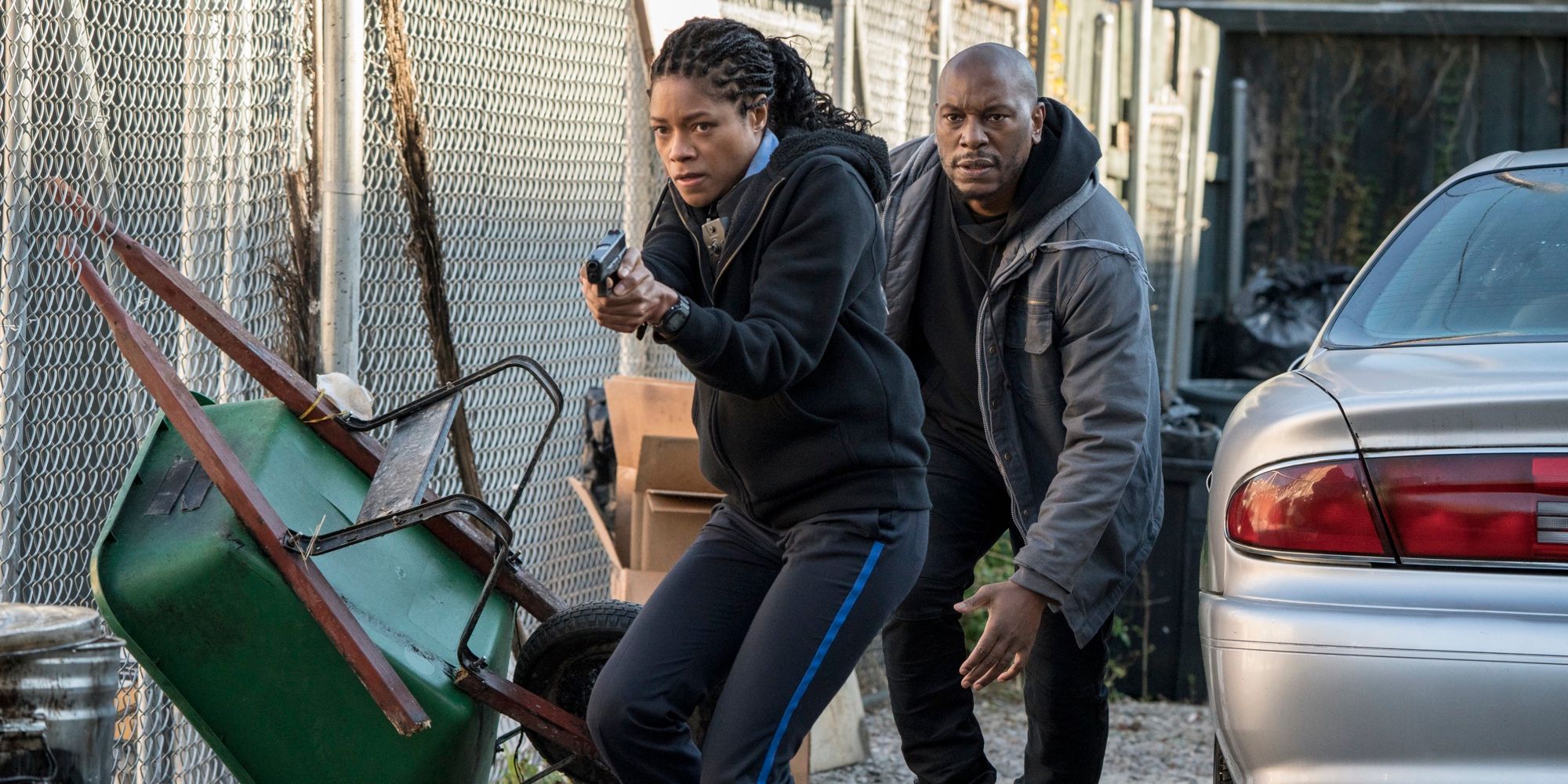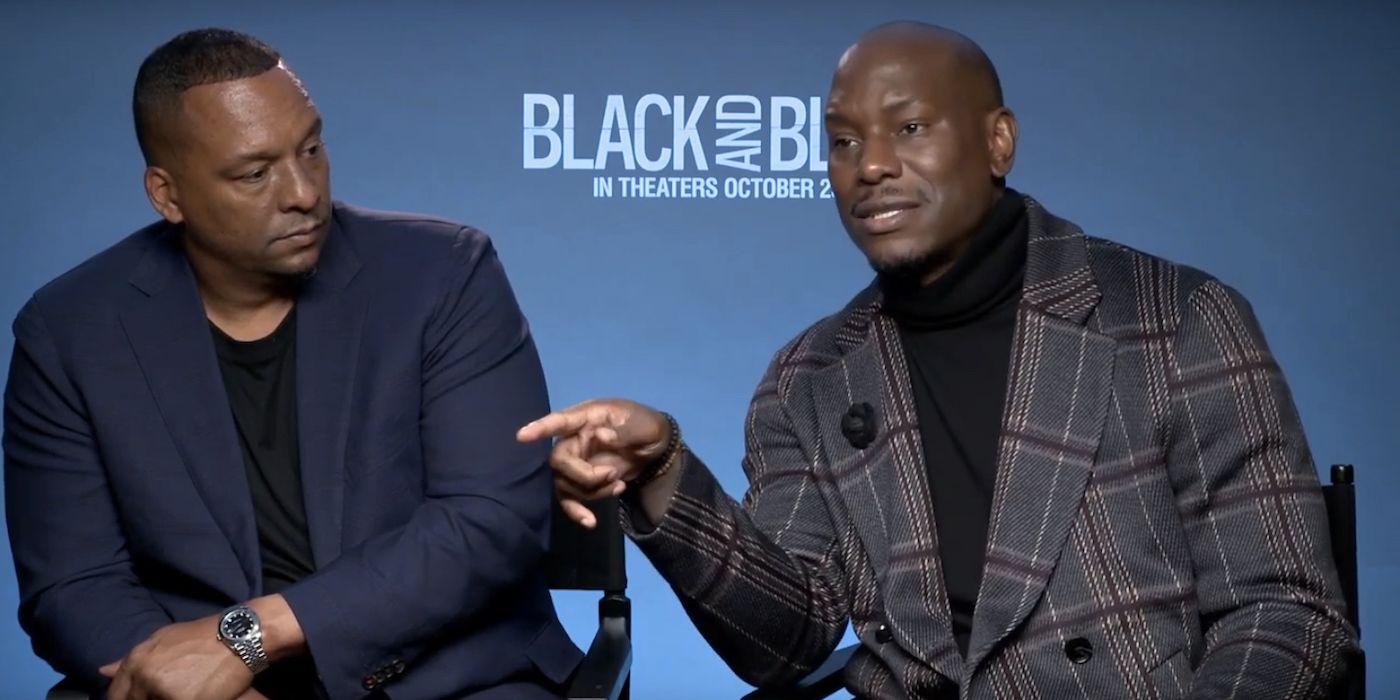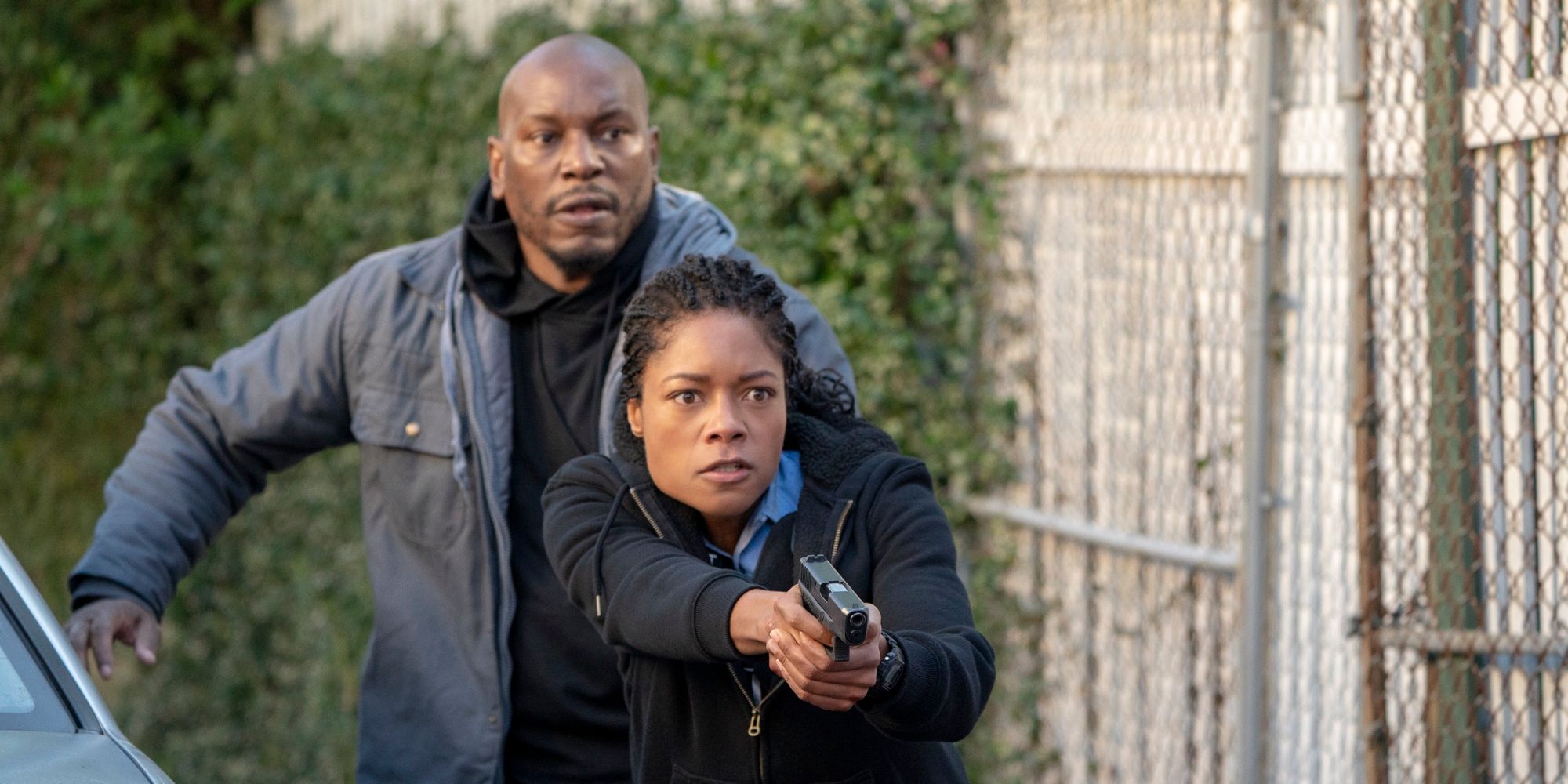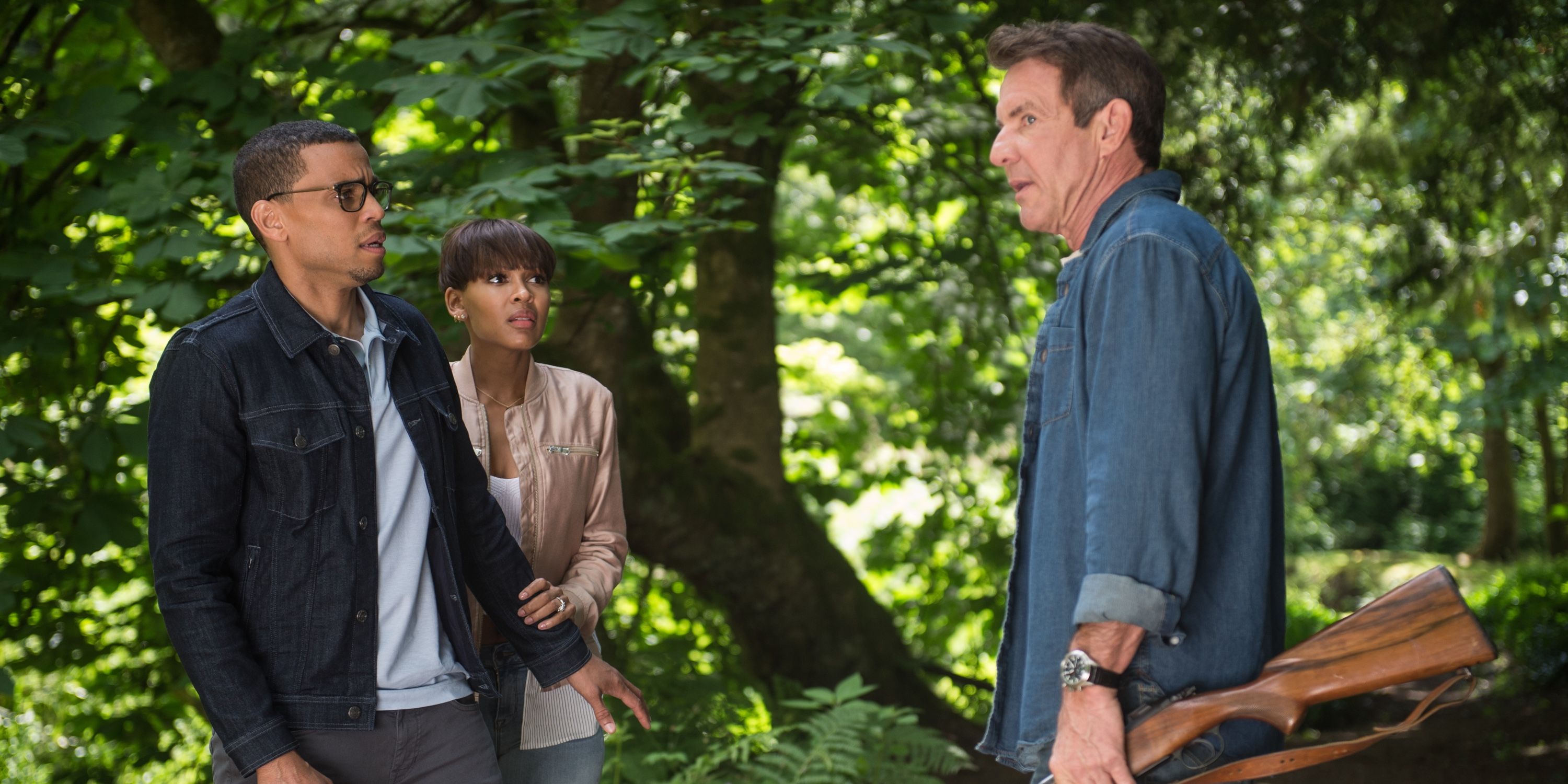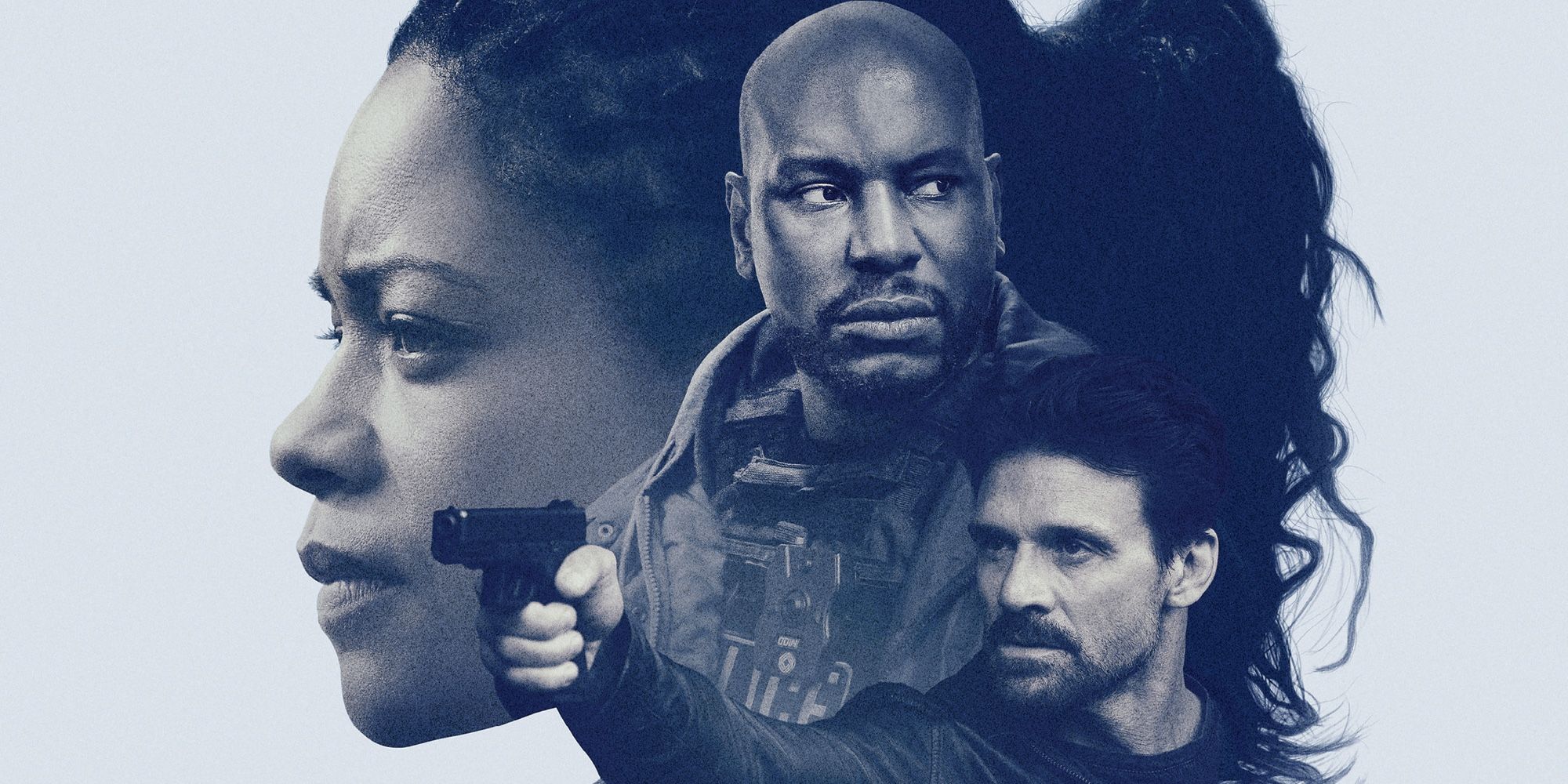Naomie Harris stars as police officer Alicia West in Black and Blue, the latest film from director Deon Taylor. As a black cop in the city of New Orleans, West finds herself torn between her loyalty to the badge and her duties to the people of her community. In a world of cops and criminals, lines can blur so easily, and innocent lives are endangered by the inevitable crossfire. Black and Blue is a realistic socio-political drama disguised as a fast-paced crime thriller; it succeeds in both regards, delivering palpable thrills and social commentary in equal measure.
Director Deon Taylor has been working his way through Hollywood for years, clawing his way to the top with a combination of horror movies and comedies before finally hitting it big with The Intruder, starring Michael Ealy, Meagan Good, and Dennis Quaid. The low-budget film was a commercial hit, and Taylor finally received the Hollywood respect he had spent years working to earn.
While promoting the home video release of Black and Blue, Deon Taylor spoke to Screen Rant about his work on the film and his own personal Hollywood odyssey. He talks about getting to show audiences a side of actor Tyrese Gibson different from his cocky Fast & Furious persona, and how it always seems to be the case that black filmmakers have a tougher time getting mainstream success than their counterparts from other races. Finally, Taylor gives a brief taste of what audiences can expect from his next film, the Hillary Swank noir thriller, Fatale.
Black and Blue is out now on digital, on demand, and Blu-ray.
I got to chat with you briefly at the New York City junket for the movie, and now it's like, phase two of this movie!
Phase two, that's great!
And I think this movie is going to have long legs on home video and on cable and streaming and all that, so I want to start by saying congratulations on making such an entertaining movie that is also important to the world we live in, that's about real things, and is more than, you know, stuff blowing up.
We have to do it like that. We have to make movies like that. We're in a time right now where there's so many incredible filmmakers and movies, but a lot of movies that are being made, although they're so fun and entertaining, they're not saying anything in a time where things need to be said. Black and Blue was a really dope movie to make. It really had a voice, it was really speaking to people. That's all I can hope for when I'm making something.
We talked before about how crazy it is that this is the first time a major studio film features a black woman stars in a leading role playing a cop. I feel that says everything there is to say about the relationship between police and the neighborhoods they are theoretically supposed to serve.
That's crazy. It is crazy. I sounded like a broken record during the whole press tour, telling people about this. Like, hey, this is the first time we've had an African-American female as a cop in the leading role. I don't think people understand what that means. That is a big deal. When you sit back and think about it, there are hundreds of thousands of movies, and you mean to tell me that, in this landscape, we've never had an African-American female lady leading a movie as a cop? That's crazy. So I was really excited it was Naomie Harris, and I'm really excited it was me who got to direct that film. I'm serious, man, I'm excited about it, historically. You woke up the beast in me; I'm gonna have to see if I can get myself in the black encyclopedia for that!
The other half of the casting equation for Black & Blue is Tyrese. He has such a gravitas, such a presence, but seeing him play such a vulnerable, mild-mannered character, so beaten down by the world around him, it's the opposite of what one might expect.
Tyrese was interesting. We were in a situation where there were a ton of other actors the studio wanted. All of them were great names, but I really wanted someone who came from the environment that the movie spoke to, and Tyrese came from the inner city of Watts in Los Angeles. Knowing Tyrese, I said, man, this is something that would be incredible for him to do. And people know Tyrese from Fast & Furious, but the reason he got that was because John Singleton put him in Baby Boy. That was a very serious movie in terms of what it dealt with. Real issues that were happening in the black community. And Tyrese is a star, so I went to him and said, "Hey man, how about we do something where we go back to your roots and skip the sexy dancing, and we skip the cool clothes, and the CGI. Let's get back to pure performing." And he loved it. I mean, he was like, "I need something I can sink my teeth into, because I've been jumping out of airplanes and driving cars and doing green screens." And the rest is history. He was fully committed. He threw himself into the role. He ate, drank, and slept with Mouse. I think that's why we got the performance we got out of him.
I hope gets nominated for many awards and wins them all. It's a really special performance.
Yes.
Reading about you and your career, I hear this really cool stories, like you persuading Rutger Hauer to star in Dead Tone, your first movie. And paying out-of-pocket for Dante Spinotti for Black & Blue. Can you talk a bit about how someone can get told not to do something in their art, and they find a way to do it anyway?
Because we've been doing this for so long on our own, independent, we're at a place where someone knows what we're making and what we're doing as filmmakers, the entire Hidden Empire team. The reality is, we've got to always try to put the best product on screen. We don't always have the money. We don't have the money! We don't have the resources that other filmmakers and other studios have, because we independently make these movies. What happens is, when we make the movie, we are fighting to make sure that the film works. We'll make sure that it works to the highest level. When the movie goes to theaters, nobody cares about how much money we had. Nobody cares that you worked 20 hours in one night to get that one shot. Nobody cares about that! Nobody knows any of that. They only see the finished product.
You've really got to fight for every inch you can get in this business.
And I've been saying this for a long time; there's no better example than The Intruder. We made a $4 million movie. There's a poster with Michael Ealy, Meagan Good, and Dennis Quaid. Next to that poster is a poster for Avengers: Endgame. Every star in the world. On the other side of our poster is Long Shot with Seth Rogen and Charlize Theron. How did Intruder beat them? How did it open #2 against Endgame? It's because of us fighting for cinematographers, fighting for Dennis Quaid, fighting to make the movie better. That's what it's about. It proves that people go to the movies to be entertained. People go to the movies to see good products. All the hype around the movie is cool, but if the movie doesn't work, then people will tell their friends and they won't go see it!
It's a testament to your dedication that people are still talking about your movies. People are still talking about The Intruder. People are still talking about Black & Blue.
It's still alive out there!
I imagine it's hard for anybody to make a movie. There's a lot of pieces that have to line up for years and years to turn some ideas into a two-hour work of art. But it seems to me that black filmmakers have a higher mountain to climb when it comes to making their movies. That's the perception I have, know what I mean?
Me too. Me too, man! (Laughs) I think you're right, man. I think it's a much harder hill to climb for black filmmakers. Male or female. I think it's a harder box to check. Some of the perks and things that come along for other ethnicities, other than black, are pretty incredible in Hollywood. I've seen white filmmakers who've made a rap video, and they're in front of a $30 million movie. I've seen that multiple times. I've seen other nationality filmmakers make a short, and then they're on the set of a Marvel movie! You know what I mean? Or a small independent movie that makes no money at the box office, but people are like, "It's a great movie," and they're making more movies. And I've seen black filmmakers rub two sticks together and make a great film that people really respond to, and they don't know if they can get a job. That's where things have to change in terms of the energy in Hollywood. I think it's really changing now. I think there's an incredible resurgence of studio executives, right now, who are taking a real look at black filmmakers, and I think that's incredible. They're really giving people projects to work on. That goes for black directors, and black female directors and producers. I think that's happening now. It happened to me with Black & Blue. It just happened to me with Lionsgate, that group over there came to me and said, hey, we understand you have a really good script called Free Agents, and we want to make that movie with you. I've been walking the streets of Hollywood for 14 years, and this year is the first year people are coming up to me and saying, "We're interested in you." That's just a testimony to how times are changing. Things are changing, and people are looking for people who will create good content from all backgrounds.
That's awesome. You had to take the long way around, but it took you to where you are now, where you always knew you were going to be at, you know?
Let me tell you something, man... Your outlet has been... I can flip back years and see my interviews with you guys. I appreciate what you guys do over there, and I'm really grateful for what you just said. The road has been long, but you've been there to support us, and you've been there for me. God willing, we can keep our heads up and our image up. We've been driving for the last ten years, but now we're really in the race. Maybe we can pass a few cars in the race, now!
Can you say anything about Fatale, your next movie?
Fatale, man. I'm telling you... It's a very off-beat, crazy movie. It's in the same line as Fatal Attraction. You've never seen Hillary Swank play a character like this. She's supporting Michael Ealy, and I'm hoping, man, that we can really get some eyebrows on her from the Academy. She's lights-out bonkers in this film. I'm really excited about it.
Black and Blue is out now on digital, on demand, and Blu-ray.

